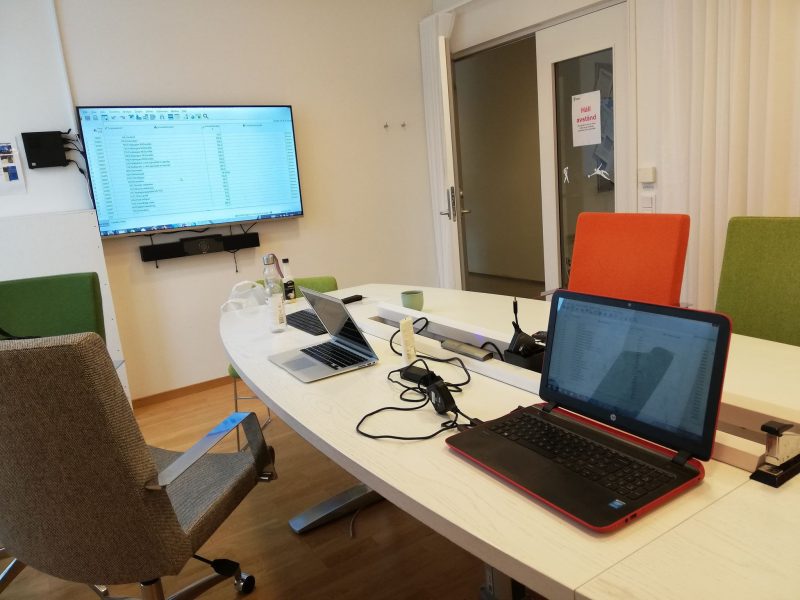
An insight into a Nutrition Science MSc Degree project
It’s thesis time…
With all four courses in the Nutrition MSc at Karolinska Institutet (KI) completed and all grades received, the only assignment left before being able to say “I have a Masters in Nutrition Science from KI” is the Masters Degree project, or aka “thesis”.
The time allocated for this piece of work is from the 18th of January until 23rd of May; with the presentations taking place in early June. The thesis accounts for 30 credits so essentially all the 4 courses combined that have been previously completed. Therefore it sure is an important project and crucial to pick a topic that interests you, as you will be spending a great deal of time working on it!
Choosing a topic
Ultimately this will be based on your interests and what you wish to study, and let me tell you- you start thinking about which projects to pick fairly soon after the course starts, with the PM being written up in November/ December time. So as soon as the course starts and even before the course starts, it’s a good idea to have some study areas in mind that you are particularly interested in.
Thankfully, previous degree projects were provided when we were deciding our own, which is a great way to find inspiration and also to see what kind of subject areas other past students have chosen. I found these helpful and also made me realise which study areas I did not want to go into! Furthermore the course director provided some projects and suggestions of potential researcher groups that were looking for students. So some help and guidance is provided.
However you are the one needed to contact research groups that interest you and this involves emailing researchers; one tip of advice, is to email a few at once that interests you (and you may have to wait a week for a reply, but that’s ok, also a reminder email after a week doesn’t hurt). The research group is not exclusively limited to KI, it can be at other Swedish Universities or even abroad (which was a challenge to do during these covid-19 times), and, in fact you are encouraged to look outside of what KI has to offer. The most important aspect to consider is what interests you and what you will find to be motivational, as this makes the work more enjoyable and exciting!
What’s the project I’m working on, I hear you ask?!
For the thesis we had the option to work in pairs or not, some students found this concept quite weird “sharing a thesis?!”, I myself found it to be a great opportunity to work with someone who is also passionate about the same study area. By working in a team, not only can some of the workload be evenly shared but also you can learn form each other and spot each others’ mistakes. The thesis itself is submitted as a pair, however we will have to present the degree project individually.
The project that we are working on is investigating the association between healthy eating/diet diversity and health related quality of life (HRQOL) in a sample of 1140 Swedish adolescents, and in conjunction with- The Swedish School of Sport and Health Sciences, GIH. Other variables that we may consider investigating in our analysis, include: parental education, gender, diet documented on school days/weekend days and parent nationality. This I find to be a deeply interesting area of research and already there is evidence for the association between healthy eating and improved HRQOL and as well as unhealthy eating and lower HRQOL. I do think that what we eat and the diversity of the food groups we consume has an influence on our mood and how we feel, however due to the nature of the study design reverse causality can’t be ruled out!
We started to tackle this thesis by finding references for the introduction and possibly the discussion section, which in-fact required both of us to learn how to use Endnote (which I dare say is extremely useful, however I did enjoy all those years of referencing manually). We have also considered what different methods were involved in the study and are currently working on composing healthy eating and diet diversity scores for all the participants, this has involved learning how to go about using a syntax in SPSS (I know frightening stuff! nevertheless enjoyable when you get the hang of it!).
With some great and valuable work already completed, there is still a long thesis road to go, I shall certainly be posting another blog about my thesis experience and quite possibly my fellow students too, meanwhile any questions about the thesis or the Nutrition Science Masters in general, fire away!
Contact- callum.morison.regan@stud.ki.se
Callum Regan- Nutrition Science
I am from Scotland and have come to Stockholm to study Nutrition Science MSc at Karolinska. I am a blogger for this course and am interested in many areas of Nutrition including ways to reduce childhood obesity and improve adolescent mental health. I love to travel, meet new people, play sport, keep healthy, watch films and listen to jazz music. I also enjoy trying food from around the World and am always searching for the best food out there!

0 comments